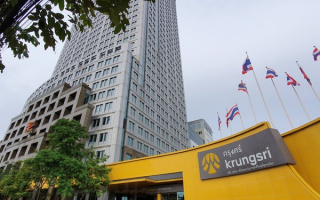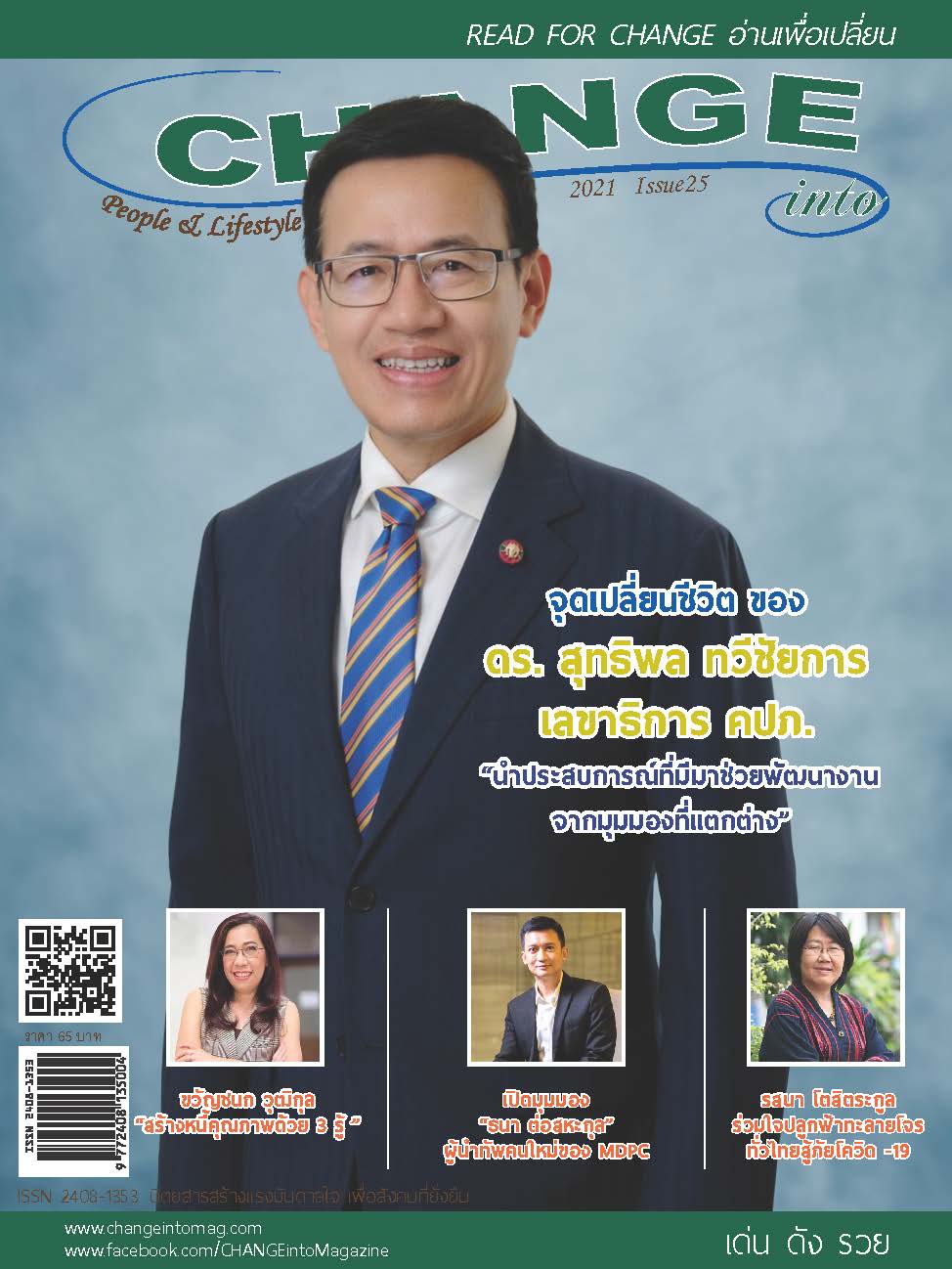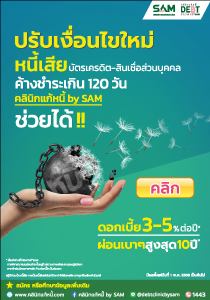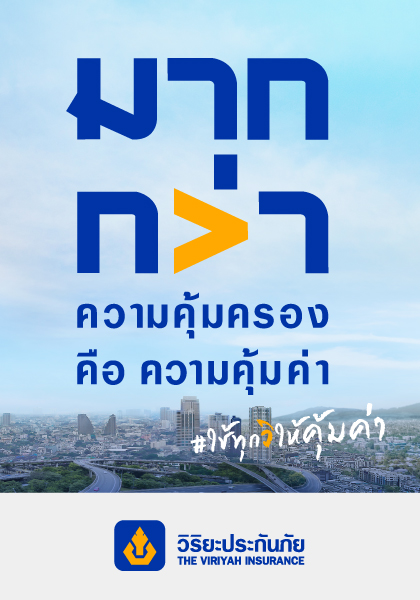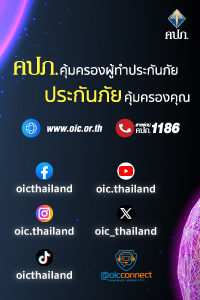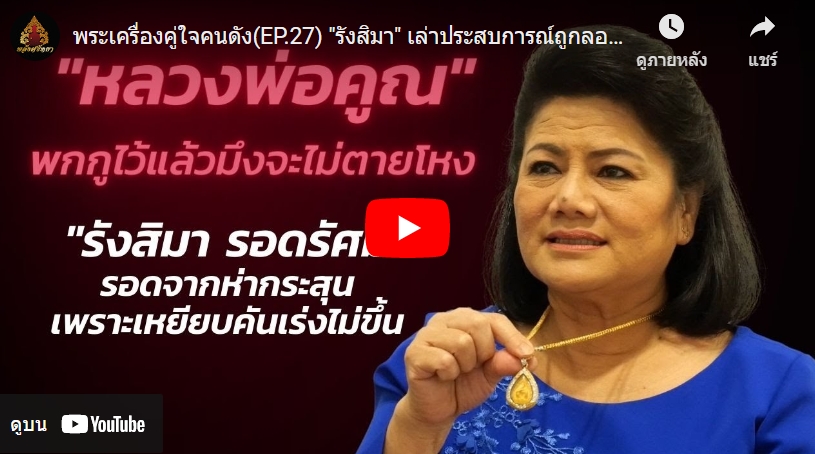ดีแทคมั่นใจถือครองคลื่นย่านความถี่สูงมากพอ ไม่เข้าร่วมประมูลคลื่นความถี่ 1800MHz

ดีแทคมั่นใจถือครองคลื่นย่านความถี่สูงมากพอ ไม่เข้าร่วมประมูลคลื่นความถี่ 1800MHz
15 มิถุนายน 2561 - บริษัท โทเทิ่ล แอ็คเซ็ส คอมมูนิเคชั่น จำกัด (มหาชน) หรือดีแทค แจงไม่ยื่นประมูลคลื่นความถี่ 1800 MHz ที่จัดขึ้นโดยสำนักงานคณะกรรมการกิจการกระจายเสียง กิจการโทรทัศน์ และกิจการโทรคมนาคมแห่งชาติ (สำนักงาน กสทช.) ทั้งนี้ ดีแทคยังให้ความสำคัญแผนคุ้มครองลูกค้าใช้งานมือถือหลังหมดสัมปทาน จะต้องได้รับความคุ้มครองและไม่กระทบการใช้งานตามที่เคยมีกรณีสิ้นสุดสัมปทานคลื่นความถี่กับผู้ให้บริการรายอื่น พร้อมมุ่งให้ความสำคัญกับกระบวนการการมีส่วนร่วมกับผู้กำหนดนโยบาย และหน่วยงานกำกับดูแลเรื่องการจัดสรรคลื่นย่านความถี่ต่ำ (low-band spectrum) ในอนาคต
นายลาร์ส นอร์ลิ่ง ประธานเจ้าหน้าที่บริหาร บริษัท โทเทิ่ล แอ็คเซ็ส คอมมูนิเคชั่น จำกัด (มหาชน) หรือดีแทค กล่าวว่า “ดีแทคได้พิจารณาการเข้าร่วมประมูลอย่างรอบคอบ โดยมีข้อสรุปถึงการถือครองคลื่นย่านความถี่สูง (high-band spectrum) มีปริมาณมากพอที่จะรองรับการใช้งานดาต้าที่เติบโตขึ้นในอนาคต โดยการประมูลในครั้งนี้คงหลักเกณฑ์และวิธีการอนุญาตให้ใช้คลื่นความถี่ไม่เอื้อประโยชน์ให้บริษัทฯ สามารถสร้างมูลค่าเพิ่มให้กับลูกค้าและผู้ถือหุ้นได้ในระยะยาว ดีแทคมั่นใจในการให้บริการอย่างต่อเนื่องจากจำนวนคลื่นความถี่ทั้งหมดที่ถือครองมากพอที่จะรองรับการเติบโตการใช้งานดาต้าของลูกค้า และเตรียมพร้อมสำหรับมาตรการคุ้มครองลูกค้าเพื่อไม่กระทบการใช้งานจากกรณีสิ้นสุดสัมปทานคลื่นความถี่”
ดีแทคมีคลื่นย่านความถี่สูงปริมาณมากเพียงพอ
ปัจจุบัน ดีแทคได้ถือครองความถี่ย่าน 2100 MHz จำนวน 2x15 MHz และมีคลื่นใหม่ความถี่ 2300 MHz จำนวน 1x60MHz ซึ่งเป็นคลื่นความถี่เดียวที่กว้างที่สุดในประเทศไทย ซึ่งถ้าหมดสัมปทานคลื่น 1800 MHz และสิ้นสุดระยะเวลาเยียวยาแล้ว ดีแทคยังมีคลื่นย่านความถี่สูงเพิ่มมากกว่าอีกเดิม 10 MHz จากคลื่นใหม่ 2300 MHz ที่จะนำมาให้บริการสำหรับคลื่นย่านความถี่สูงอย่างพอเพียง
ทั้งนี้ คลื่น 2300 MHz ได้ถูกนำมาให้บริการ 4G TDD เพื่อตอบสนองการใช้งานดาต้าที่เน้นการดาวน์โหลด สอดคล้องกับพฤติกรรมลูกค้าที่หันมานิยมการรับชมวิดีโอผ่านสมาร์ทโฟนจำนวนหลายชั่วโมงต่อวัน
ถึงแม้ว่าดีแทคจะสิ้นสุดสัมปทานคลื่น 1800 MHz และ 850 MHz ดีแทคยังมีปริมาณคลื่นความถี่ที่จะให้บริการต่อจำนวนลูกค้ามากกว่าผู้ประกอบการรายอื่น (ดีแทคมีจำนวนคลื่นเฉลี่ย 2.75 MHz ต่อจำนวนลูกค้า 1 ล้านราย ในขณะผู้ให้บริการรายอื่นมีจำนวน 1.37 MHz และ 1.99 MHz)
ทั้งนี้ เพื่อเพิ่มประสิทธิภาพโครงข่าย ดีแทคยังเร่งขยายสถานีฐานอย่างรวดเร็วกว่าที่ผ่านมา โดยมีการขยายเพิ่มสถานีฐาน 3G/4G บนโครงข่าย 2100 MHz จำนวน 4,000 แห่งต่อปีในช่วง 2560-2561 ซึ่งขยายรวดเร็วกว่าเดิมถึง 2 เท่าเมื่อเทียบกับปีก่อน ดีแทคยังรุกขยายสถานีฐานสำหรับการใช้งานบนคลื่นความถี่ 2300MHz dtac TURBO ด้วยเทคโนโลยี 4G TDD ให้ได้อีกอย่างน้อย 4,000 แห่งในปีนี้ตามข้อตกลงกับทีโอที และหากดีแทคสามารถทำได้เต็มกำลังการติดตั้งสถานีฐานคาดว่าจะขยายได้มากถึง 7,000 แห่งในปลายปีนี้
อุตสาหกรรมโทรคมนาคมต้องการคลื่นย่านความถี่ต่ำ (LOW-BAND SPECTRUM)
จากที่ประเทศไทยมีคลื่นย่านความถี่สูง (high-band spectrum) รองรับบริการ ดีแทคขอย้ำว่าภาพรวมอุตสาหกรรมโทรคมนาคมของไทยในขณะนี้ต้องการคลี่นความถี่ต่ำ (low-band spectrum) มากกว่า เพื่อเปิดโอกาสให้ประชาชนในต่างจังหวัด และพื้นที่ห่างไกลสามารถเข้าถึงบริการโทรคมนาคมขั้นพื้นฐาน และกระตุ้นให้เกิดการพัฒนาเศรษฐกิจในระดับชุมชน การสร้างนวัตกรรมที่ตอบสนองความต้องการและปัญหาเฉพาะในแต่ละท้องถิ่น อันจะนำมาซึ่งการพัฒนาคุณภาพชีวิตอย่างยั่งยืน ตามแผนพัฒนาเศรษฐกิจและสังคมของประเทศ แต่ประเทศไทยยังขาดแผนการจัดสรรคลื่นความถี่ต่ำที่จะมาให้บริการ
นอกจากนี้ ประเทศไทยยังติดกับดักต้นทุนของคลื่นความถี่ที่สูงระดับโลก เมื่อรวมกับข้อกำหนดกรณีผู้เข้าร่วมประมูลมีจำนวนเท่ากับหรือน้อยกว่าจำนวนใบอนุญาต หรือ N-1 จะนำประเทศไปสู่สภาวะขาดคลื่นความถี่เพื่อนำมาใช้งาน เมื่อเปรียบเทียบกับประเทศในภูมิภาคเดียวกัน ประเทศไทยจ่ายค่าบริการอินเทอร์เน็ตที่สูงกว่าแต่กลับได้ใช้งานความเร็วอินเทอร์เน็ตที่ช้ากว่าประเทศอื่น การตั้งหลักเกณฑ์ที่ไม่เหมาะสมจะนำไปสู่ภาวะการขาดแคลนคลื่นความถี่ในการพัฒนาโครงสร้างพื้นฐาน การใช้งานอินเทอร์เน็ตที่ช้าลง โดยจะส่งผลเสียต่อภาพรวมในการเปลี่ยนผ่านสู่ดิจิทัลของประเทศไทย
มั่นใจให้บริการอย่างต่อเนื่อง
ในขณะเดียวกัน การให้บริการมือถืออย่างต่อเนื่อง หรือ “ซิมไม่ดับ” คือหน้าที่ร่วมกันของ กสทช. ในฐานะองค์กรกำกับดูแล ซึ่งมีหน้าที่คุ้มครองผู้บริโภคในกิจกรรมโทรคมนาคม และถือเป็นความรับผิดชอบร่วมกับผู้ให้สัมปทานคลื่นความถี่ พร้อมกับผู้ประกอบการโทรคมนาคมในการที่จะต้องให้บริการตามประกาศ กสทช. เรื่อง มาตรการคุ้มครองผู้ใช้บริการเป็นการชั่วคราวในกรณีสิ้นสุดการอนุญาตสัมปทาน หรือสัญญาการให้บริการโทรศัพท์เคลื่อนที่ พ.ศ. 2556 และ พ.ศ. 2558 เพื่อคุ้มครองลูกค้าให้สามารถใช้บริการได้อย่างต่อเนื่อง โดยดีแทค และ CAT ได้ร่วมยื่นแผนคุ้มครองลูกค้าใช้งานมือถือหลังหมดสัมปทานคลื่น 1800 MHz และ 850 MHz ต่อ กสทช. เมื่อวันที่ 7 มิถุนายนที่ผ่านมา
แผนความคุ้มครองลูกค้าในกรณีสิ้นสุดการอนุญาตสัมปทานดังกล่าวที่ยื่นต่อ กสทช. เพื่อให้ลูกค้าดีแทคที่ยังอยู่ในระบบสัมปทานเดิม จะต้องได้รับความคุ้มครองและไม่กระทบการใช้งานตามที่เคยมีกรณีสิ้นสุดสัมปทานคลื่นความถี่กับผู้ให้บริการรายอื่น และยังมีลูกค้าคงค้างในระบบเช่นเดียวกัน ซึ่งที่ผ่านมาผู้ประกอบการที่หมดสัมปทานได้รับระยะเวลา 9-26 เดือนในช่วงเยียวยา ซึ่งได้สิ้นสุดเมื่อผู้ชนะการประมูลคลื่นได้ทำตามหลักเกณฑ์และเปิดใช้งานคลื่น ดีแทคยืนยันที่ลูกค้าจะต้องได้รับการคุ้มครองตามประกาศ กสทช. คลื่น 1800 MHz ควรนำมาสู่การใช้งานสำหรับมาตรการคุ้มครองผู้ใช้บริการเป็นการชั่วคราวในกรณีสิ้นสุดการอนุญาตสัมปทานจนกระทั่งผู้ชนะการประมูลได้ทำตามกฎเกณฑ์และเปิดให้บริการวันแรก สำหรับคลื่น 850 MHz ที่ไม่ได้นำไปประมูลดีแทคจะต้องได้รับสิทธิ์จนกระทั่งคลื่นได้ถูกนำไปจัดสรรให้กับผู้ได้รับอนุญาตใช้งานต่อไป
จากการที่ดีแทคได้เร่งโอนย้ายลูกค้าที่ใช้บริการ 2G และเร่งขยายโครงข่ายทั้งคลื่น 2100 MHz และ 2300 MHz จะเป็นมาตรการยืนยันเพื่อลูกค้าดีแทคที่ใช้งานบนทุกคลื่นความถี่ทั้ง 2G, 3G และ 4G จะมั่นใจได้อย่างเต็มที่สำหรับการใช้งานอย่างต่อเนื่องไม่มีความเสี่ยงจากซิมดับ
ดีแทคมุ่งสู่การสร้างโครงข่ายดาต้าที่ดีที่สุด
นายประเทศ ตันกุรานันท์ รองประธานเจ้าหน้าที่บริหารกลุ่มเทคโนโลยี บริษัท โทเทิ่ล แอ็คเซ็ส คอมมูนิเคชั่น จำกัด (มหาชน) หรือดีแทค กล่าวว่า “ดีแทคยืนยันเต็มร้อยที่จะสร้างโครงข่ายการใช้งานดาต้าให้ดีที่สุดสำหรับประเทศไทย เราลงทุน 4,510 ล้านบาท ต่อปี เพื่อให้บริการคลื่น 2300 MHz ตามสัญญาทางธุรกิจและความร่วมมือกับทีโอที และดีแทคยังลงทุน 1.5-1.8 หมื่นล้านบาทในการขยายโครงข่ายคลื่น 2100 MHz และ 2300 MHz โดยการที่เป็นพันธมิตรคู่ค้ากับทีโอทียังทำให้ดีแทคมีโอกาสทางธุรกิจใหม่ สู่การให้บริการบรอดแบนด์ไร้สายประจำที่ (Fixed Wireless Broadband) และการร่วมเป็นพันธมิตรกับ CAT ทำให้ดีแทคได้ใช้งานเสาสัญญาณโทรคมนาคมหลังจากสิ้นสุดสัมปทาน วันที่ 15 กันยายน 2561 ทั้งหมดนี้จะทำให้ลูกค้าดีแทคมั่นใจสามารถใช้บริการอย่างต่อเนื่องและได้รับประสบการณ์ใช้งานที่ดีที่สุดอีกด้วย”
นายลาร์ส กล่าวเพิ่มเติมว่า “ลูกค้าดีแทคมั่นใจได้ในการใช้บริการอย่างต่อเนื่อง ดีแทคมีคลื่นย่านความถี่สูง (high-band spectrum) มากที่สุด และเราได้เร่งสร้างโครงข่ายเพื่อการใช้งานดาต้าที่ดีที่สุดในประเทศไทยไม่ใช่แค่เพื่อวันนี้แต่เพื่อรองรับอนาคต โดยขณะนี้ผู้ให้บริการในอุตสาหกรรมโทรคมนาคมต้องการมากที่สุด คือ การจัดสรรคลื่นย่านความถี่ต่ำ (low-band spectrum) ที่มีความชัดเจน เพื่อวางแผนในการให้บริการผู้ใช้งานดาต้าได้ครอบคลุมทั้งในเมืองและทุกพื้นที่ทั่วไทย”
dtac affirms its high-band spectrum leadership, announces it will not participate in the 1800 MHz spectrum auction
June 15, 2018 - Total Access Communication Public Company Limited, or dtac, has not submitted an application for spectrum licensing for telecommunications service in the frequency band of 1800 MHz to the Office of National Broadcasting and Telecommunications Commission (NBTC).
Mr. Lars Norling, CEO of Total Access Communication PLC. or dtac, said: “dtac has considered the auction carefully and concluded that dtac currently has enough high-band spectrum to handle the growth of data services. Moreover, the auction conditions did not allow for long-term value creation for our customers and shareholder. As always, dtac will continue to ensure it holds enough spectrum to serve the growing needs of its customers. And we will take all necessary preparatory measures to ensure that no customer is adversely impacted by the concession expiry.”
DTAC HAS AMPLE HIGH-SPECTRUM HOLDINGS
dtac holds 2x15 MHz of capacity on 2100 MHz and recently gained access to a block of 60 MHz on 2300 MHz, Thailand’s widest single block of spectrum. Allowing for the loss 1800 MHz after the remedy period, this constitutes a net gain of 10 MHz in terms of high-band holdings.
As the 2300 MHz spectrum operates on 4G TDD, its benefits are even greater on download capacity, which is increasingly critical given the changing behaviors of Thai consumers who now stream several hours of video per day. Even without 1800 MHz and 850 MHz, dtac has more download capacity per customer than its competitors (dtac: 2.75 MHz per million subscribers, competitors: 1.37 MHz and 1.99 MHz). dtac’s customers will therefore not be affected by the loss of 1800 MHz.
To bolster its network, dtac is also rolling out new cell sites faster than ever in its history. It is adding about 4,000 3G/4G 2100 MHz sites per year in 2017-2018, double the rollout speed in previous years. In addition, dtac committed to adding a minimum 4,000 dtac TURBO (4G TDD) sites in 2018 as per its agreement with TOT. In fact, dtac is aiming for up to 7,000 dtac TURBO sites by year-end.
TELCOS NEED LOW-BAND SPECTRUM
In contrast with Thailand’s high-band spectrum availability, dtac underscored the pressing need to make more low-band spectrum available for telecommunications, ensuring network quality for those outside of dense urban areas. Low-band signals allow the furthest coverage distances and therefore greater access to mobile connectivity, reaching rural populations where the high-density networks needed for high-band spectrum would be unsustainable. Currently, there is no roadmap for low-band spectrum availability despite keen interest from all operators.
Thailand is also an extreme outlier when it comes to spectrum auction prices. Combined with large spectrum blocks and the N-1 rule, Thailand’s spectrum auctions have led to severe spectrum scarcity and adverse effects on consumers. Compared to some of their regional neighbors, Thais pay more for their mobile internet connections while getting slower speeds. Ultimately, these conditions can also lead to inadequate infrastructure development and lasting damage to Thailand’s digital economy.
ENSURING UNINTERRUPTED SERVICES
In the meantime, ensuring uninterrupted mobile services is a shared responsibility of the NBTC, the spectrum owner and the service provider. To secure a smooth transition for all its customers, dtac submitted a joint consumer protection plan with CAT on June 7, 2018, for temporary provision of services in the 850 MHz and 1800 MHz bands.
This joint plan is aimed at ensuring uninterrupted services and follows the practice by other operators in the past. The three previous remedy periods in Thailand lasted 9 to 26 months and they ended on the first day of operation of the new licensee. dtac is therefore adamant that its customers should be granted the same rights as those of other operators, as per NBTC regulations: 1800 MHz should be granted remedy until the first day of operation of the winning bidder; and as 850 MHz has not be auctioned, it should be granted remedy until there is a new licensee ready to operate it
Together with dtac’s active efforts to migrate its 2G customers and aggressive network rollout on 2100 MHz and 2300 MHz, these measures offer protection to customers on every single band currently operated by dtac—2G, 3G and 4G—and will ensure continuous service without any risk of SIM “blackout.”
DTAC IS BUILDING THE BEST DATA NETWORK
Mr. Prathet Tankuranun, Chief Technology Officer, dtac, said: “dtac is fully committed to building the best data network in Thailand. We are investing 4.51 billion baht per year to operate 2300 MHz in partnership with TOT and will invest a further 15-18 billion baht in building our 2100 and 2300 MHz network. Thanks to our strategic partnership with TOT, we can explore new business opportunities like fixed wireless broadband. And our partnership with CAT will also allow us to keep operating the towers that are under the concession ending Sep 15, 2018. This will ensure continuous service for our customers and the best experience possible.”
dtac’s network also holds several technological firsts, making it the most advanced in Thailand. It already operates on virtual cores which permit the rapid launch of innovative telecommunications solutions and a much greater flexibility in responding to changing consumer needs. dtac also uses cutting-edge big data analytics to roll out new cell sites with much greater precision and efficacy than in the past. This August, dtac will be the first to commercially operate 5G-ready massive MIMO antennas in Thailand.
“Our customers can rest assured they will have service continuity. We have the most high-band spectrum and are rapidly building the best data network in Thailand, not just for today but also for tomorrow. What all telecommunications operators now want is a clear roadmap for low-band spectrum, to keep up with Thai data consumption both in urban centers and across the whole country,” said Mr. Norling.




